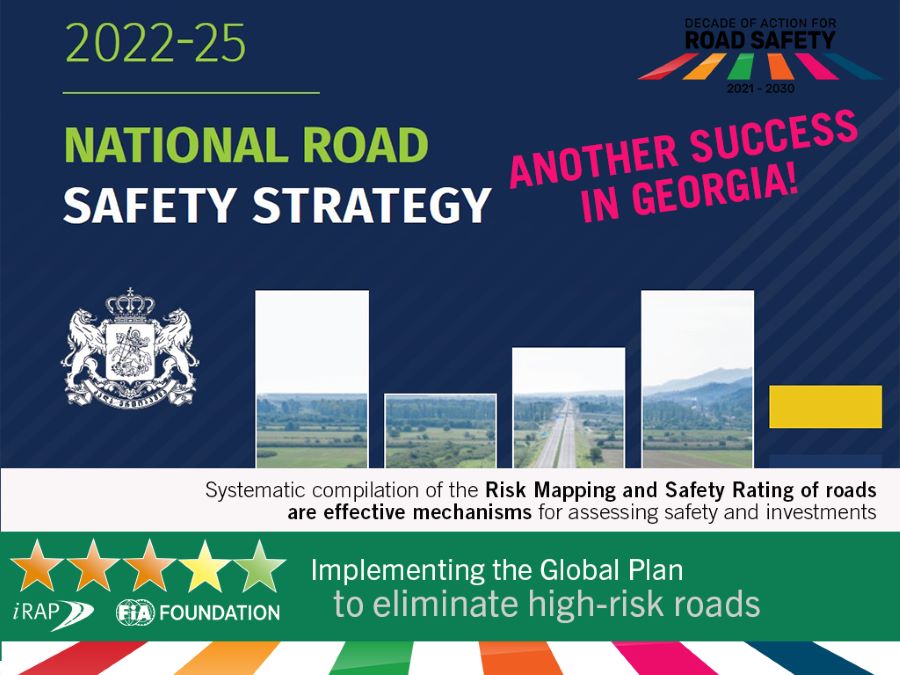Top left picture (left to right): David Pashalishvili (Head of Traffic Management Unit), Giorgi Taktakishvili (Road Safety Engineer) and Mamuka Patashuri (Head of Road Safety Division) of the Roads Department Georgia
Partner-led iRAP activity in Georgia has already assessed 1,148km of roads and designs, and 11 schools, influencing the safety of USD$479 million of road infrastructure investment. 133 people have benefited from iRAP global/on-line training, along with 55 people trained locally. Five practitioners are iRAP accredited to deliver iRAP specification services to the consistent global standard.
The current National Strategy extends on Georgia’s 2016-2020 Road Safety Strategy which also required for baseline assessments and targeted improvements based on the iRAP Star Rating and identified investment plans. An outcome indicator included the achieved percentage of rural roads with an iRAP 4-star rating. Reviews of Safe System road safety engineering and speed management practices were also recommended.
iRAP’s Safer Journeys Specialist for Europe Samar Abouraad said, “I congratulate Georgia on its long-term road infrastructure safety strategy which has put iRAP assessments and evidence-based strategic investment at its heart for more than 10 years. I encourage the Roads Department to continue their yearly assessments and implementation of related measures to reach their target by 2030.”
According to iRAP’s Safety Insights Explorer, achieving UN Target 4 for greater than 75% of travel on 3-star or better roads for all road users in the country by 2030 stands to save an estimated 44,602 fatalities and serious injuries over the 20-year life of road treatments with an economic benefit of USD$3.5 billion to Georgia’s economy – a benefit of more than $9 for every $1 spent.

